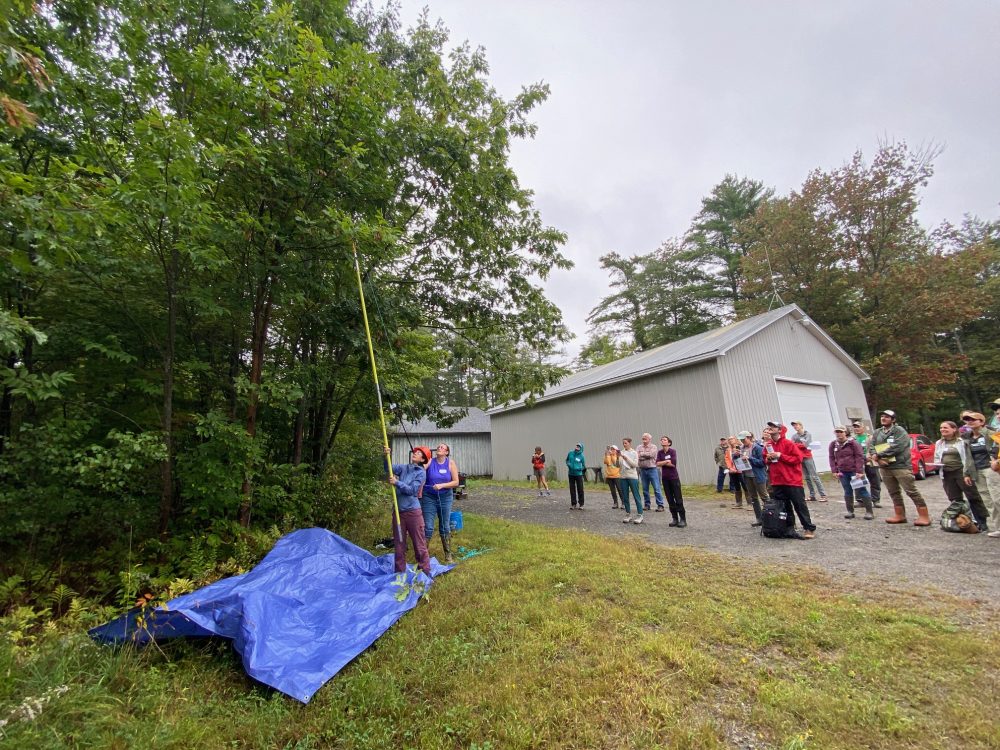
APCAW Hosts Seed Collection Trainings
Collecting ash seeds is one way to conserve ash trees, and thus make it possible for Wabanaki relationships with ash to survive and thrive. On Tuesday, September 12th a APCAW hosted a seed collection training session at the University of Maine Forest which was attended by nearly 40 people, representing conservation organizations, state agencies, large landowners, foresters and private landowners. We were honored to be joined by Les Benedict, who has been working on ash seed collection for nearly 30 years in service to his community, the St. Regis Mohawk Tribe. He made the 8 hour drive across Northern New England to support the APCAW team, as well as landowners, conservation organizations, and Tribal members to offer some encouragement for our work. Les spoke about how healing and fun the process of collecting and growing ash seed can be, and how it offers hope in the stark landscape of ash mortality due to EAB. His encouragement was received well at this critical time when ash is beginning to die and disappear across the region.
The goal of our session was to inspire volunteers and paid land managers across Maine to be motivated to collect ash seed, and provide a forum for folks interested in this work to get to know APCAW, ask questions, and get to know other interested organizations and people. We need all hands on deck during this important time, and although this year was not a productive year for brown ash seed, we hope this long term effort will build momentum into the future.
Emily Francis, PhD student on the APCAW team, walked our participants in Tuesday’s training through the Ash Seed Collection Manual, which outlines why, where, when, and how to collect seed in an accessible manner. We also discussed the uses of collecting certain data, and possible storage options for ash seed. This information is also shared in the Collecting Ash Seed pages of our website.
We were also thrilled to feature Wild Seed Project staff member Emily Baisden in our training, who contributed greatly to our discussion on how to process and store seeds. Emily spoke about her enthusiasm, but frustration with weevils–a family of tiny, highly biodiverse insects–for feeding on ash seeds and threatening their viability. We were reminded of the nearly 98 unique species of insects that solely depend on ash trees for their survival.
Les rounded out the session by sharing his low-cost, DIY designs for an ash seed drying and seed sorting machines (patents pending). Overall, Tuesday was a fun and successful day, and we did it again on Wednesday, September 13th for a smaller audience of Tribal members, basketmakers, and natural resource staff on Indian Island.
If you want to get involved in seed collection or join a group of seed collectors, please be in touch with APCAW. We are here as a resource to move this effort forward, and offer future trainings. Though seed collection season will end after Indigenous People’s Day, we’ll be out again next year, and the year after that!
